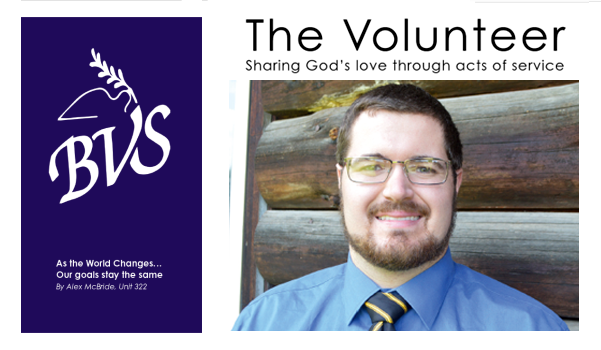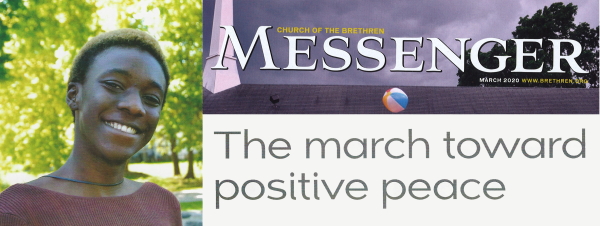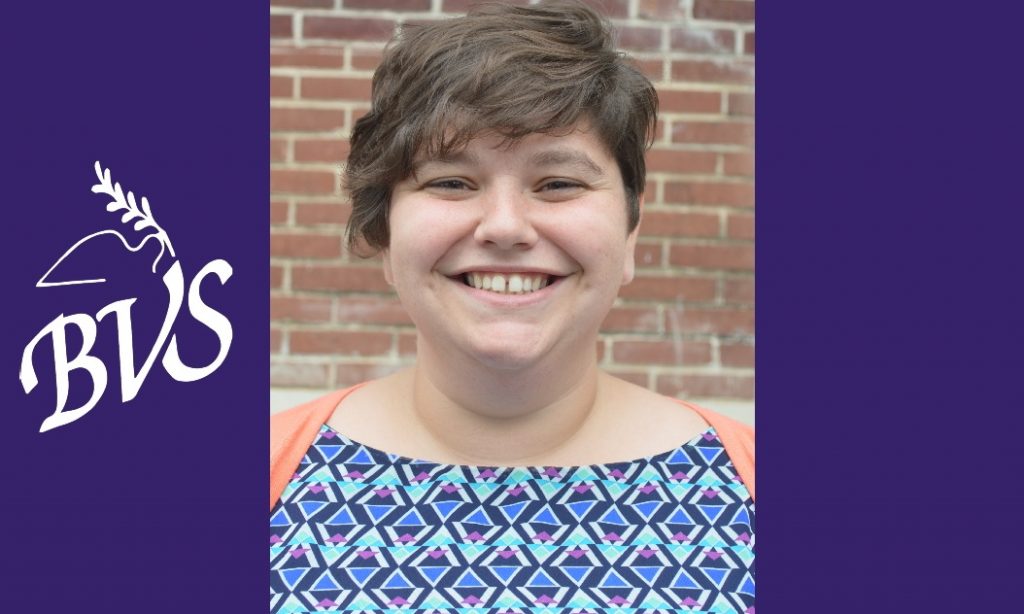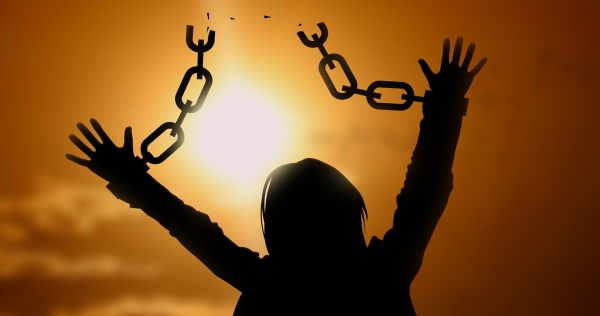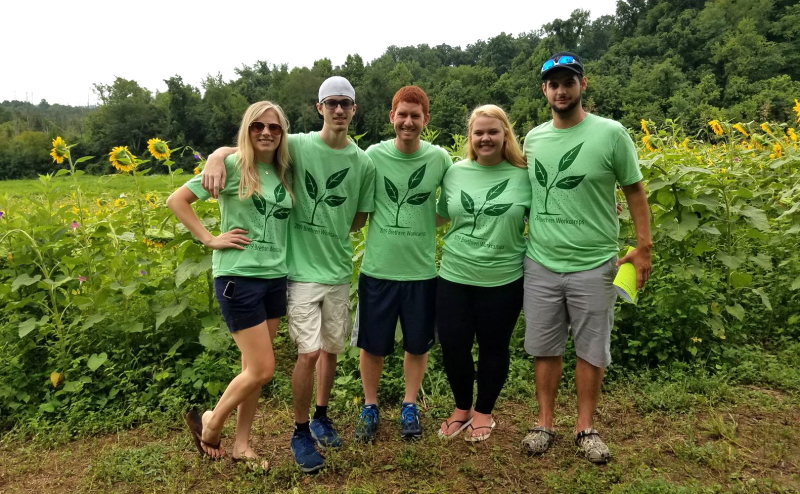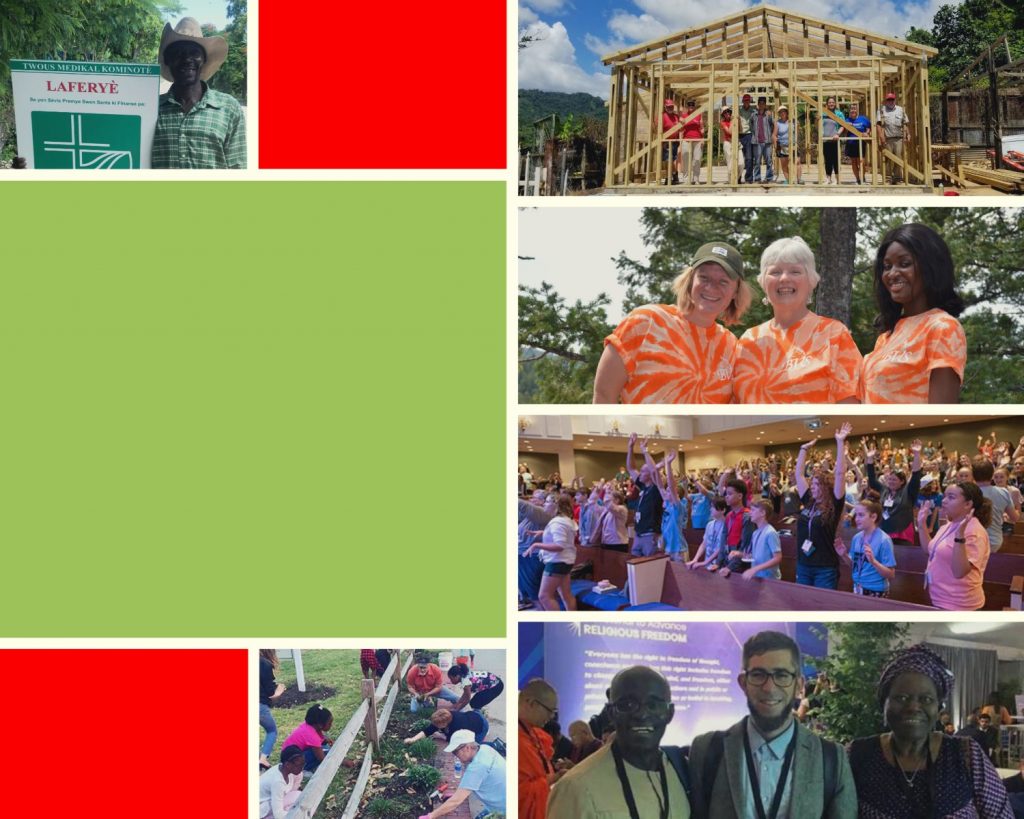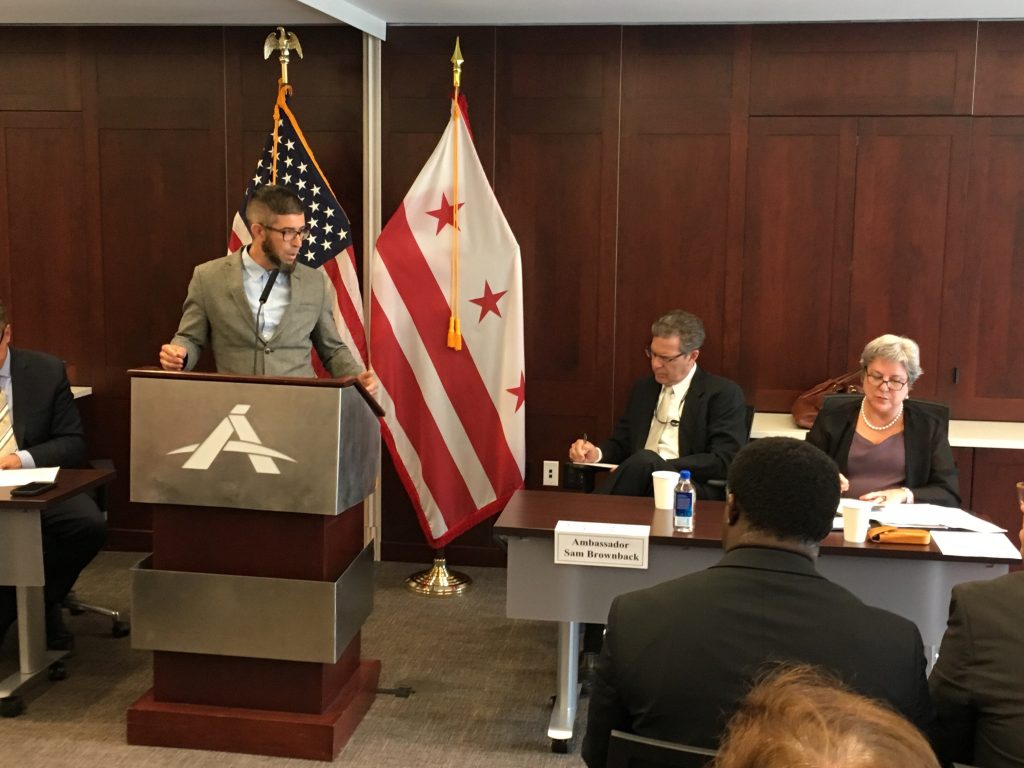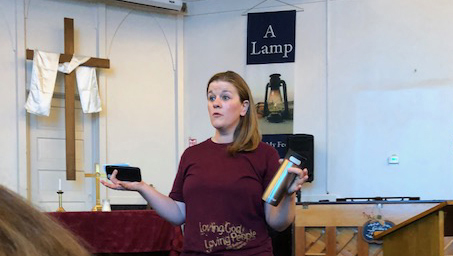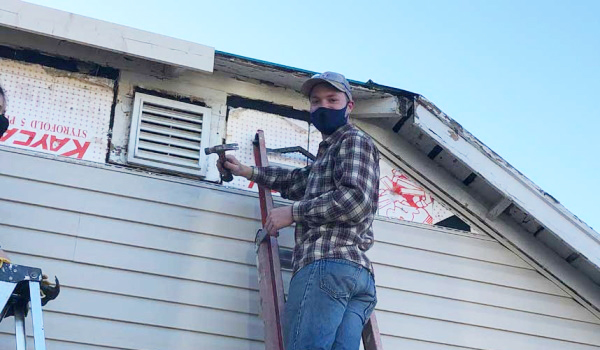
Photo courtesy of Evan Ulrich
By Evan Ulrich, member of Brethren Volunteer Service Unit 325
Dayton, Ohio, was never on my radar for places to live after I graduated from Juniata College. However, as a member of Brethren Volunteer Service (BVS) Unit 325, I found myself signing up to spend my year of service with Brethren Disaster Ministries’ (BDM) Rebuilding Program.
And I am so glad I did. BVS helped steer me toward volunteering with BDM—an organization that allows Brethren (and anyone else willing to pick up a hammer) to act upon our shared belief of serving others. In that case, that means serving others by rebuilding homes that were destroyed or damaged by natural disasters.
What I find unique and remarkable about BDM is its long-term goal. Each site focuses on long-term recovery. After all the media coverage and initial assistance has died down, BDM comes in to pick up where others left off. Sometimes even years after a disaster there is still much work to be done.
As I write this there are two sites open for volunteers—one in Bayboro, N.C., to assist those hit by Hurricane Florence in 2018, and the other here in Dayton. Our site is located a few miles east of downtown, in a recently closed Presbyterian church. Our work encompasses the greater Dayton area as we help rebuild homes damaged when 15 devastating tornadoes ripped through the area on Memorial Day in 2019.
Due to the type of disaster, the majority of our work involves repairing damaged roofs, installing new siding, and performing interior repairs due to water damage. Hanging and finishing drywall seems to be a never-ending project. I’m getting lots of practice! The work can sometimes be tedious, hot, cold, and occasionally quite odorous. Added on top of this is the duty to keep everyone safe during the pandemic and adhering to all COVID-19 safety precautions.
But helping fellow humans through love is never unbearable. It is a true blessing and the highest privilege to lay your needs down and pick up the needs of a stranger. I am grateful for being able to see this occur every day with the volunteers who come out.
Being a part of the site long-term, I have the opportunity to see the timeline of recovery over its full span. Each week brings something new: a different set of volunteers, and a different energy. But what never ceases to amaze me is the amount of quality work that gets accomplished by even the most inexperienced group of volunteers. Everyone has an important job, no matter the skill set.
One survivor of a disaster expressed his gratitude by simply saying how nice it was to not have rain coming into his house. This short statement made me step back and realize how many comforts we take for granted—and how important it is for us to safely serve others through love.
Brethren Volunteer Service and Brethren Disaster Ministries are ministries of the Church of the Brethren. Support them today at www.brethren.org/give.
This reflection was originally featured in Messenger magazine.
(Read this issue of eBrethren.)


